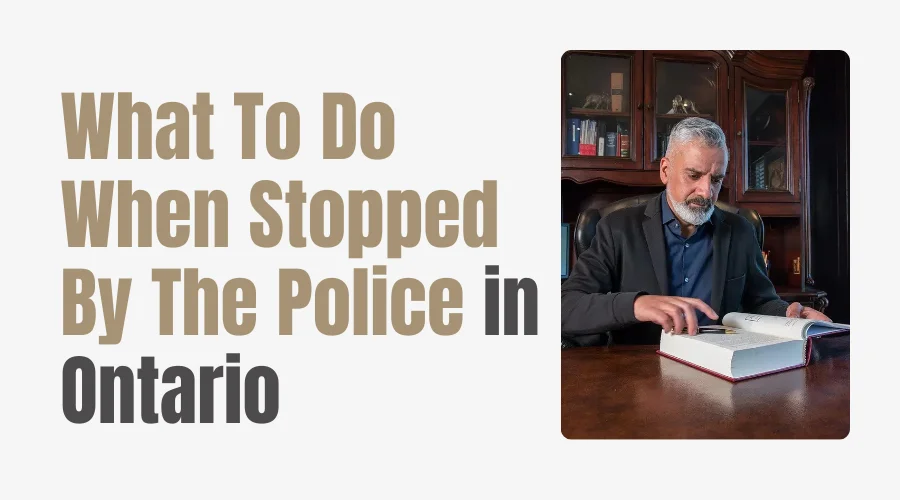Understanding Supreme Court Decision on Being “Too Impaired”

In light of a discussion on Assault cases, you might have come across Mississauga local news articles and social media posts regarding a court case involving the highest court in Canada, the Supreme Court. The case in question,
R v Sullivan
, involves two people who attempted to defend themselves in court against assault charges by using “extreme intoxication” as a mitigating factor before the Supreme Court of Canada. Decisions that are rendered by the Supreme Court of Canada affect all of Canada – including major cities like Toronto, Mississauga, Brampton etc. Suny Virk, your Mississauga criminal lawyer, is definitely the counsel you should engage if you find yourself facing assault charges of any kind. Having a well-read criminal defence lawyer who is up-to-date with the latest Supreme Court Canada rulings is the advantage you’ll want to have if you find yourself in a Mississauga courthouse.
A Bit Too Much To Drink
Diving a bit deeper into the issue that has populated our cell phone screens and newspaper headlines all across Ontario, what is Extreme Intoxication? Let us understand what Intoxication means as a baseline: Intoxication in the Canadian legal context generally refers to instances of a person being intoxicated; out of his or her senses as a consequence of consuming drugs that alter the mind and body. This is the kind of intoxication level you might reach after a night out of drinking in Mississauga or indulging yourself after visiting one of the many cannabis stores in Brampton. This general intoxication is not what is meant by Extreme Intoxication.
Even exaggerated levels of drunkenness or being high do not quite meet the legal standard of Extreme Intoxication that amounts to automatism. Extreme Intoxication refers to an individual reaching a level of intoxication from mind or body altering drugs (like alcohol) to the extent that the mind and body are disconnected from a decision making standpoint. Effectively, Extreme Intoxication is separated from regular Intoxication on a scale of degree and severity. Once an individual is intoxicated past the point of automatism, where his or her actions are literally out of the knowledge, influence, and control of the person, that is Extreme Intoxication. Extreme Intoxication can be described as a degree of intoxication where the individual’s body is actively treated as separate from the mind. What relevance does Extreme Intoxication have to a Mississauga criminal lawyer’s blog? Well…
The Key Elements
Courts in Canada dictate that crimes for which an accused is charged are dependent on two factors – termed Mens rea and Actus reus. Mens rea means “guilty mind” and Actus reus means “guilty act“ Fancy Latin terms decodified; Mens rea is the intention to commit the crime and Actus reus is the actual crime itself. For instance, an individual stealing a bag of Ketchup Lays from your local Mississauga Food Basics is likely meeting both the criteria for a crime. That person walked into the store, stole the bag of chips, and walked out of the store. The shoplifter made the intention to steal (Men rea) and acted on that intention with the act of stealing itself (Actus reus). Understanding this core principle in the Canadian legal system helps piece together the Canadian criminal law puzzle.
Now that we know the original principle, it’s time to unpack the Extreme Intoxication scenario and deep dive into how these ideas mesh together. As mentioned, situations of Extreme Intoxication are ones where drugs have been consumed to a degree of automatism, a disconnection of the mind’s thoughts, knowledge, and intentions from the actions and performances of the body. The question arises, in these situations of Extreme Intoxication, where a person’s body is effectively on “autopilot” and his or her mind has taken a temporary vacation, is it even possible for Mens rea to be established? This is the question that the Supreme Court of Canada wrestled with in the R. v. Sulivan case.
R. v. Sullivan – The Case
The R. v. Sullivan case involves two separate individuals unrelated to one another except that both committed violent crimes after becoming extremely, extremely intoxicated. One of the two accused, Thomas Chan, consumed “shrooms” (psychedelic mushrooms) that resulted in being impaired. Mr. Chan, in a state of extreme intoxication, attacked his father and his father’s partner, resulting in his father’s death. Mr. Chan’s actions resulted in a conviction of aggravated assault and manslaughter.
The second accused, and the namesake of the case, David Sullivan consumed prescription medication, upon reaching a state of extreme intoxication, used a knife to attack his mother. Mr. Sullian was consequently charged and convicted with aggravated assault and assault with a weapon.
It is important to note that although both Mr. Chan and Mr. Sullivan were in a state of extreme intoxication when they committed their acts of violence, neither of these men were permitted to use the defence of automatism in their initial trials. The basis for the rejection of the use of automatism as a defence in violent crime comes from the Criminal Code of Canada section 33.1, which specifies that automatism cannot be used as a defence for assault and related crimes.
Mr. Chan and Mr. Sullivan both challenged their cases in the Ontario Court of Appeal. The men argued that the Criminal Code of Canada section 33.1 rule is a Canadian Charter of Rights and Freedoms violation. The Canadian Charter protects the right to life, liberty and the security of the person in section 7, and protects one’s right to be presumed innocent until proven guilty in section 11. Both men’s criminal defence lawyers successfully challenged the decision of the initial trials, resulting in Mr. Chan being ordered a new trial and Mr. Sullivan’s acquittal.
Supreme Court of Canada – Taking it a Step Higher
The Ontario Court of Appeal’s decision was contested and appealed by the Crown on the affair of Mr. Sullivan and Mr. Chan, bringing the case before the Supreme Court of Canada. The Supreme Court reasoned that the Criminal Code’s section 33.1 provision was unconstitutional because it violates the Charter’s section 7, the right to life, liberty and security of the person. They reasoned that the Criminal Code provision does not provide room for the consideration of an action’s intentionality (being voluntary or not), presumes intention instead, does not allow for a defence to be made, and is therefore a violation to liberty. In Mr. Chan’s initial trial, he was not allowed to make the defence of automatism whatsoever, limiting the availability of a defence argument for his case.
How This Changes Things
While the R. v. Sullivan case has been plastered over news sites and social media with brazen claims on the implications of the Supreme Court decision; practically, the effects of the decision are not as wild as a headline might lead you to believe. The Supreme Court decision will now allow the defence of automatism to be used in cases of assault, however, this doesn’t mean that every attempt at the defence will be successful. In actuality, it is really difficult to properly engage and utilize the argument of automatism, as evidence must be provided by a qualified expert that shows the accused’s lack of intention due to extreme intoxication.
For all things criminal defence, you should speak to an expert who can protect your rights before a court and ensure your case will be handled with care and diligence. Contact Suny Virk, Mississauga’s premiere criminal lawyer for any criminal charges you might be facing.
Author Profile

- Mr. Suny Virk is a reputable criminal defence lawyer in Mississauga focusing primarily on criminal law matters of clients. Mr. Virk has been awarded with the Certificate of Merit Award in Advocacy. Now, he wants to impart his knowledge and wisdom to other people who may be struggling with the Canadian legal system to serve his community.
Latest entries
 Legal AdviceMay 15, 2025Choosing the Right Domestic Assault Lawyer for Your Defense Needs
Legal AdviceMay 15, 2025Choosing the Right Domestic Assault Lawyer for Your Defense Needs Legal AdviceApril 10, 2025Sentencing In Canada: How Does Hearings Work?
Legal AdviceApril 10, 2025Sentencing In Canada: How Does Hearings Work? Legal AdviceMarch 25, 2025Cybercrime In Canada: How Criminal Law Handles Internet Offences
Legal AdviceMarch 25, 2025Cybercrime In Canada: How Criminal Law Handles Internet Offences Legal AdviceMarch 7, 2025KNOW YOUR RIGHTS WHEN YOU ARE STOPPED BY THE POLICE
Legal AdviceMarch 7, 2025KNOW YOUR RIGHTS WHEN YOU ARE STOPPED BY THE POLICE





